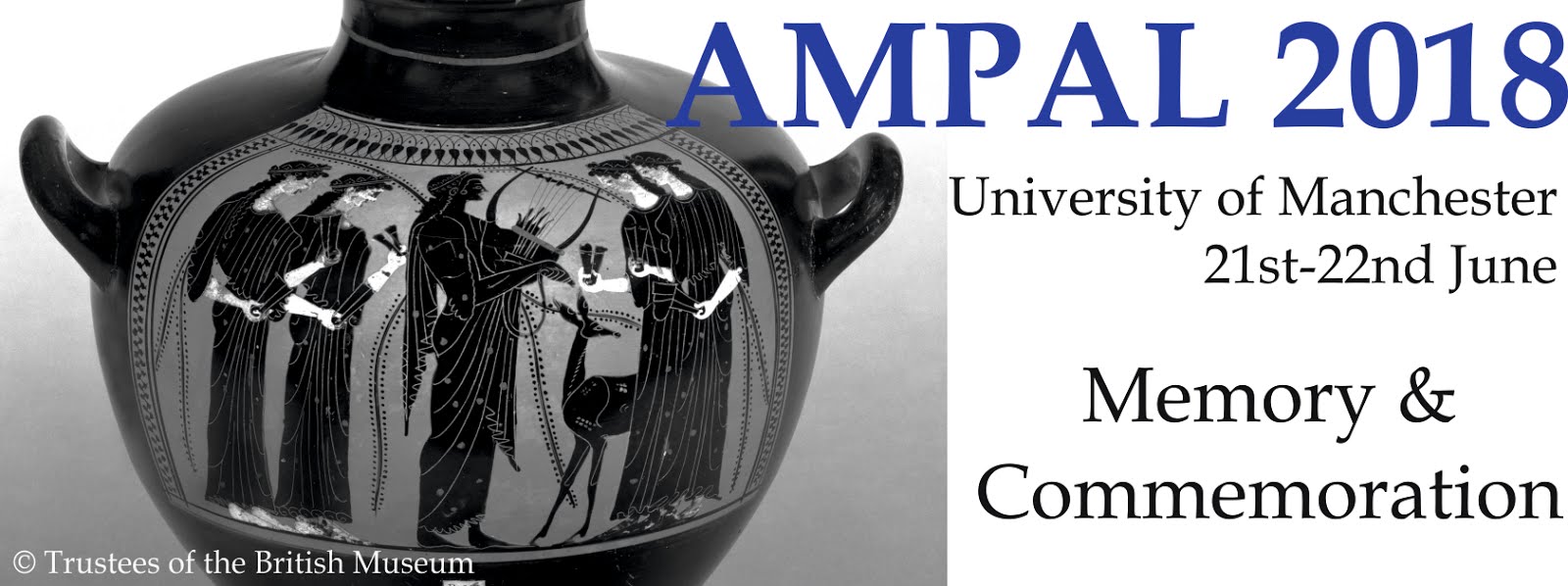Parallel session 1, panel 2: Memory and Exemplarity
(Thursday 21st June, 9.45-11.15am)
Quomodo itur ad Astra? Augustan Exemplarity and Historical Memory In the Octavia.
Emily Mitchell (University Of Oxford)
The pseudo-Senecan tragedy Octavia is deeply concerned with historical and cultural memory and with the ethics of commemoration. Uniquely among extant Roman plays, it features a scene in which two characters discuss at length the interpretation of a particular historical exemplum and the lessons it provides for the present (Oct. 435-592). In this scene, the character Seneca, hoping to dissuade the emperor Nero from divorcing his first wife Octavia and executing two suspected dissidents, urges him to emulate Augustus’ alleged clemency and integrity (472-91). Nero responds by highlighting Augustus’ violent, amoral, and tyrannical qualities and actions, ironically proposing these as an alternative exemplum (492-532). Critics have often assumed that the author of the Octavia intends us to see either Nero’s (Williams 1994, Boyle 2008, Ginsberg 2016) or Seneca’s (Habinek 2000, Kragelund 2002, Ferri 2003) interpretation of Augustus as definitively right.
This paper will argue that the debate-scene is best interpreted not as a clear-cut argument with an obvious winner and loser, but rather a nuanced reflection on the subjectivity of historical memory and the tendency of major political players to misrepresent certain events and figures to suit their own agendas. Both Seneca and Nero formulate one-sided portrayals of Augustus predicated on deliberate misreadings of programmatic passages from the Georgics and Aeneid. This distortion of the past ultimately has serious ramifications for the present: Nero’s tendency to glorify the more violent episodes from Augustus’ career, and Seneca’s failure to dissuade him from doing so, are implied throughout the Octavia to be driving Rome towards civil war. All in all, my reading allows us to see that the play warns its audience against the partial interpretation of exemplary figures, events, and texts and the commemoration of morally dubious historical precedents.
Memory of Exemplary Stories: Lelex Relates Philemon And Baucis Tale
Alessia Scalera (University Of Bari Aldo Moro)
The episode of Philemon and Baucis, the ideal centre of Metamorphosis (8, 611-724), represents a sort of paradigm of couple relationship and of traditional Roman values. Considering the moral intent of Lelex, who tells that story to show the power of gods in rewarding good people, this episode seems to show how a poor and pious couple should behave.
The exemplarity concerns both couple relationship and the values linked to pietas: hospitality, religion, lifestyle. Ovid repeatedly portrays the two peasants as thinking and acting as one. But their equality is in fact an harmony in respecting their own roles: to work in the house for wife, to work outside for husband; to be sedula for wife, to speak with others for husband. Their hospitality is exemplar as well: in the entire village their house is the only one that opens the door to the two divine guests, even if their identity was unknown; the old couple provides them with a plentiful dinner of fresh and natural food; they are also full of humanity in commiserating their neighborhood invaded by flood. Their final wish is a sort of summary of their exemplary pietas and love: they choose to become priests of the temple of Juppiter and to die together.
This moral tale was told to Lelex by non vani senes (l. 721), and Lelex himself is an old man that tells that story to others: the link between morality, senectus and memory is very strong in both Greek and Latin epic literature, and it is particularly evident in this sort of chain of storytellers. Of course, the pedagogical intent influences the way how Lelex speaks, emphasizing the link between senectus and pietas; indeed, his old age represents an obstacle in remembering the story, as many commentators pointed out. But in all Metamorphoses and in general in epic, old men are always respected because they can remember past events and for that reason they are considered wise.
Laura Chambers (University of Manchester)
Valerius Maximus’ collection of exempla, Facta et Dicta Memorabilia, contains over one thousand exempla that served an essential educative purpose in helping first-century Romans to think ethically (Langlands, 2008). Many of these exempla would have been well-known to the collection’s original readership through their knowledge of Rome’s history as acquired elsewhere, both within written texts and through their encounters with various visual aids. These visual aids included commemorative statues, positioned in important commercial and political spaces within Rome. Honorific statues were predominantly of men: within the existing sources, only four statues honouring women are attested prior to the imperial age and the increased commemoration of imperial women. One of these four statues was of Cloelia, the young teenage girl who escaped her chains of imprisonment during the siege of Rome in the fifth-century BCE and swam the Tiber to safety (as told in Livy 2.13). Her remarkable courage earns her a position within Valerius Maximus’ selection of exempla dedicated specifically to bravery (section 3.2): however, her appearance within the text is deemed so surprising as to temporarily interrupt the author’s line of thought: ‘Cloelia makes me forget what I had in mind to say…’ (Immemorem me propositi mei Cloelia fecit, 3.2.2).
This paper will consider the extent to which this temporary forgetfulness can be primarily attributed to Cloelia’s gender. I will argue that this episode is suggestive of the greater degree of flexibility afforded to the literary characterisation of female exempla by male authors, in comparison with their male counterparts. This flexibility, I suggest, results in unique and surprising outcomes, such the irony of Cloelia’s status as an exemplum (that is, as a vehicle of memory preservation) causing forgetfulness within a collector of exempla. One result of Valerius Maximus’ approach is the enhanced potential to show how cultural memory can be re-written in new and surprising ways, and this paper will explore his manipulation of Cloelia’s status as a literary exemplum in order to illustrate these re-writing processes.

Comments
Post a Comment